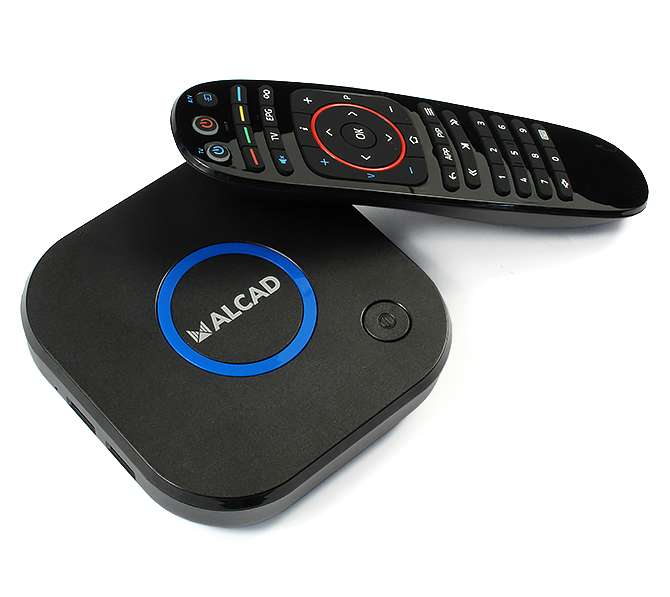Difference between OTT and IPTV is a crucial topic for anyone looking to understand modern streaming technologies. While both deliver digital content, they operate differently in terms of infrastructure, quality, and accessibility. OTT services stream via the internet without dedicated networks, whereas IPTV relies on private connections for enhanced stability. Choosing between them depends on factors like content variety, streaming quality, and user preferences. Let’s explore their key differences and advantages.
Difference between OTT and IPTV: Key Technical and Service Distinctions
The difference between OTT and IPTV lies in how they deliver content and their infrastructure. OTT services use the open internet, while IPTV operates on private, controlled networks with set-top box requirements.
- Delivery Method: OTT platforms rely on public internet networks, which means the video is transmitted using regular broadband. IPTV, on the other hand, depends on a private, managed network that prioritizes video traffic, ensuring a more stable connection.
- Hardware Requirements: To watch IPTV, users typically need a set-top box or a Smart TV with an IPTV app. OTT services, however, work on a wide range of devices, including smart TVs, smartphones, and streaming sticks.eed a set-top box or a Smart TV with an IPTV app. OTT services, however, work on a wide range of devices, including smart TVs, smartphones, and streaming sticks.
- Content Access: IPTV services generally offer live TV channels, video-on-demand (VOD), and premium content, whereas OTT platforms such as Netflix and Hulu primarily focus on on-demand content without live TV.
- Service Stability: IPTV ensures a high-quality, buffer-free streaming experience because it operates on a dedicated network. In contrast, OTT services depend on broadband speed, which can cause buffering issues during peak usage hours.
Read more about:best IPTV for Android TV Box
How the Difference Between OTT and IPTV Affects Content Delivery and Streaming Quality
The difference between OTT and IPTV has a direct impact on streaming performance and viewing experience. IPTV provides a more consistent quality, while OTT offers greater accessibility.
- Network Dependency: IPTV is delivered through a controlled network managed by telecom providers, ensuring smooth playback. OTT services, however, rely on the public internet, making them more vulnerable to slow connections and buffering.
- Video Resolution: IPTV providers usually support high-definition (HD) and 4K streaming with minimal interruptions. OTT services, in contrast, use adaptive bitrate streaming, which adjusts video quality based on internet speed, sometimes resulting in lower resolution.
- Latency Issues: Live IPTV broadcasts have significantly lower latency, making them ideal for sports events, news channels, and real-time entertainment. OTT services often have a delay of 20-30 seconds, which can be an issue for live events.
- Bandwidth Consumption: OTT services consume more bandwidth, especially when streaming in 4K, whereas IPTV is optimized to deliver high-quality streams using less data.
Difference between OTT and IPTV: Which One Is Better for Live TV and On-Demand Content?
The difference between OTT and IPTV makes each platform better suited for different use cases. IPTV excels in live TV streaming, while OTT dominates on-demand content consumption.
- Best for Live TV: IPTV is the best choice for users who want real-time broadcasting, such as sports matches, news channels, and special events, as it offers low latency and no buffering.
- Best for On-Demand Content: OTT platforms like Netflix and Disney+ provide huge content libraries with thousands of TV shows and movies that can be watched anytime, making them the top choice for binge-watchers.
- Subscription Flexibility: OTT services usually offer pay-as-you-go monthly plans, allowing users to subscribe and cancel anytime. IPTV providers often require long-term contracts or bundle their services with internet plans.
- Multi-Device Support: OTT platforms are highly flexible, allowing users to stream content on smartphones, tablets, smart TVs, and web browsers. IPTV, however, is typically restricted to Smart TVs, Firestick, and set-top boxes.
Read more about:IPTV with local channels
Understanding the Difference Between OTT and IPTV in Terms of Cost and Accessibility
Cost and accessibility are crucial factors in deciding between OTT and IPTV. OTT services are generally more affordable, while IPTV often comes with a higher price tag due to its infrastructure.
- Subscription Costs: OTT services offer lower monthly fees with no long-term commitments, making them budget-friendly. IPTV, in contrast, usually costs more per month due to the premium nature of its service and network management.
- Accessibility: OTT services are available worldwide as long as users have an internet connection. IPTV, however, is often geographically restricted and may require VPNs for access outside a specific region.
- Installation & Setup: IPTV requires set-top boxes or Smart TV applications, which may involve additional installation steps. OTT services, however, can be accessed instantly through a web browser or app.
- Free vs. Paid Options: Many OTT platforms offer free ad-supported content, giving users access to entertainment without paying a subscription fee. IPTV, on the other hand, is almost always a paid service.
Difference between OTT and IPTV: How IPTV Works Compared to OTT Streaming Services Like Netflix and Hulu
The difference between OTT and IPTV lies in their content delivery methods. IPTV operates on private networks, ensuring stable streaming, while OTT platforms like Netflix and Hulu rely on public internet connections, making quality dependent on bandwidth.
- Streaming Source: IPTV content is delivered via dedicated servers, ensuring minimal buffering. In contrast, OTT platforms stream content over a CDN, making the quality variable based on internet speed.
- The difference between OTT and IPTV: is evident in their reliance on either managed networks or open internet.
- Customization Options: IPTV services often include TV guides, scheduled recordings, and parental controls, while most OTT platforms focus on simple, on-demand access without these additional features.
- The difference between OTT and IPTV: here is that IPTV offers a more traditional cable-like experience.
- Live & VOD Combination: IPTV offers both live TV and video-on-demand, making it a versatile choice for viewers who prefer traditional and on-demand content in one platform. OTT platforms, on the other hand, primarily focus on on-demand streaming.
- User Control: OTT platforms allow viewers to pause, rewind, and skip content at will, while IPTV generally follows scheduled programming with limited playback options.
Read more about:cheapest cable tv providers in my area

Difference between OTT and IPTV: Advantages and Disadvantages for Users and Service Providers
When comparing the difference between OTT and IPTV, factors such as accessibility, pricing, and streaming quality come into play. OTT services provide flexibility, while IPTV ensures a stable viewing experience with high-definition quality.
- Flexibility vs. Stability: OTT allows users to stream content from anywhere, whereas IPTV requires a dedicated connection but delivers consistent, high-quality streams. The difference between OTT and IPTV is clear in how flexibility and stability affect user experience.
- Device Compatibility: OTT works on various devices, including smart TVs and smartphones, while IPTV often requires additional hardware like a set-top box for access. This difference between OTT and IPTV determines how easily users can access content across different platforms.
- Subscription & Pricing: OTT services generally offer affordable, contract-free plans, while IPTV subscriptions may cost more due to infrastructure and licensing requirements. IPTV services often include premium features that justify their pricing.
- Quality & Reliability: IPTV ensures a steady HD and 4K streaming experience, while OTT adjusts video quality dynamically based on the user’s internet speed. Users looking for uninterrupted high-quality streams may find IPTV the better choice.
Read more about:Simple IPTV services
Which Technology Is More Future-Proof: OTT or IPTV?
With rapid advancements in internet technology, the difference between OTT and IPTV is becoming more noticeable, with OTT gaining the upper hand.
- Market Growth: OTT platforms are experiencing rapid expansion, while IPTV remains limited to specific regions due to licensing restrictions.
- Internet Evolution: The rise of fiber-optic and 5G networks makes OTT more viable, as it no longer suffers from major buffering issues.
- Consumer Preferences: Many users prefer the flexibility of on-demand streaming, causing OTT services to dominate the global market.
- Regulatory Impact: IPTV services operate under strict licensing and regulatory frameworks, whereas OTT platforms face fewer legal barriers.
How Internet Speed and Infrastructure Impact the Performance of IPTV and OTT Services
Both OTT and IPTV rely on internet infrastructure, but their performance differs based on network capacity and speed.
- Broadband Requirements: IPTV requires a stable, high-speed connection, while OTT adapts to varying network speeds, making it more accessible.
- Streaming Quality: IPTV ensures consistent high-definition quality, while OTT quality fluctuates based on network congestion.
- Geographical Impact: IPTV works best in regions with well-established network infrastructure, while OTT is available worldwide.
- Data Usage: IPTV is optimized for efficient bandwidth use, whereas OTT consumes significantly more data when streaming in HD or 4K.
FAQs
What is the main difference between OTT and IPTV in terms of content delivery?
The difference between OTT and IPTV lies in network infrastructure—IPTV uses private, managed networks for stable streaming, while OTT relies on the open internet.
How does the difference between OTT and IPTV affect streaming quality and reliability?
Since IPTV operates on dedicated servers, it delivers consistent HD and 4K quality, whereas OTT platforms depend on bandwidth, leading to potential buffering issues.
Which is better for live TV streaming: IPTV or OTT services?
IPTV services offer a structured, cable-like experience with real-time broadcasts, while OTT services provide more flexibility but may experience delays during live events.
Do IPTV and OTT require different types of internet connections or speeds?
IPTV typically requires a high-speed, stable connection due to its dedicated network, while OTT platforms adjust streaming quality based on available internet bandwidth.
Read more about:How to Install IPTV on Fire Stick
